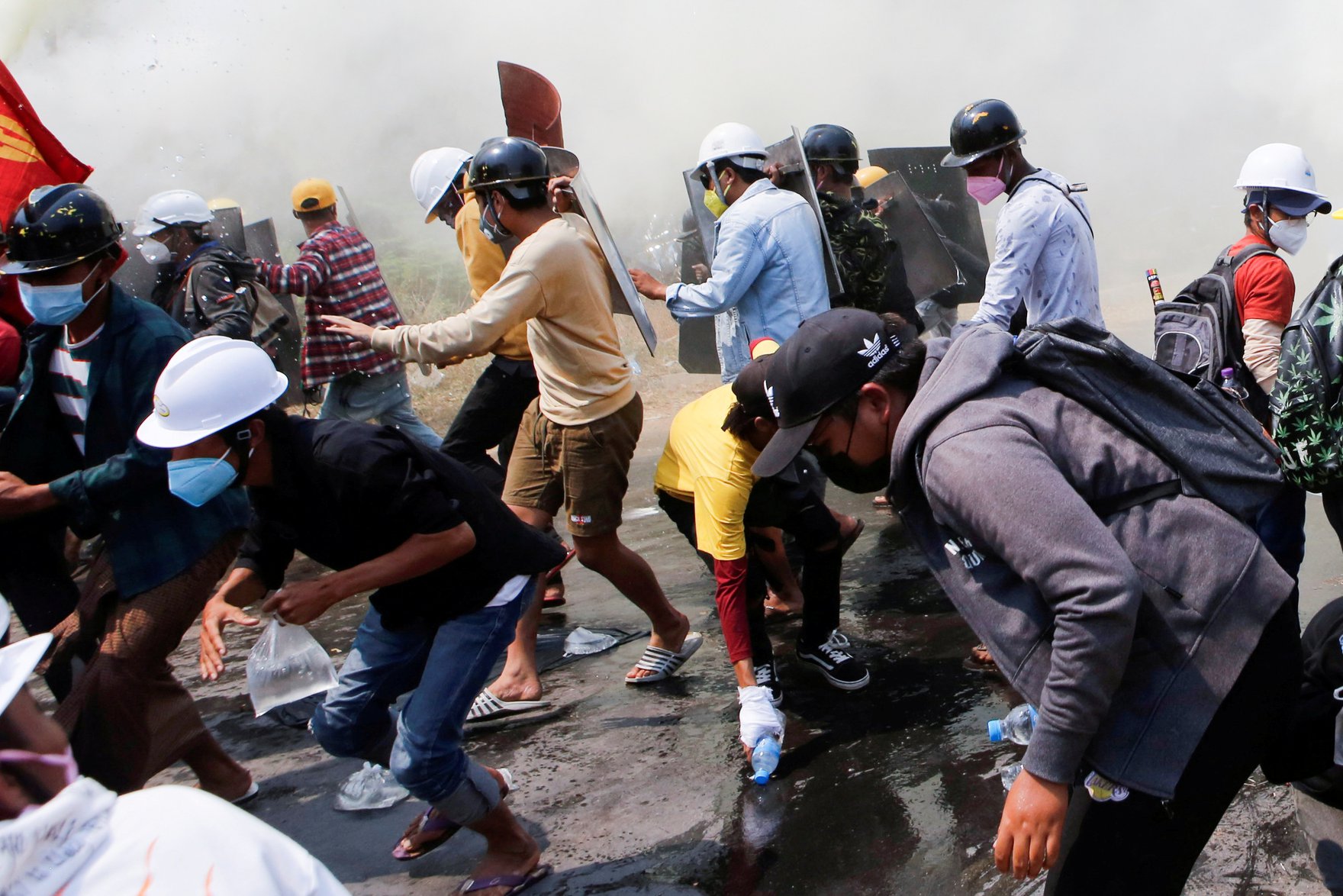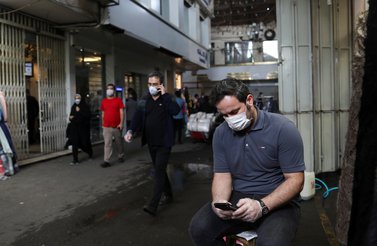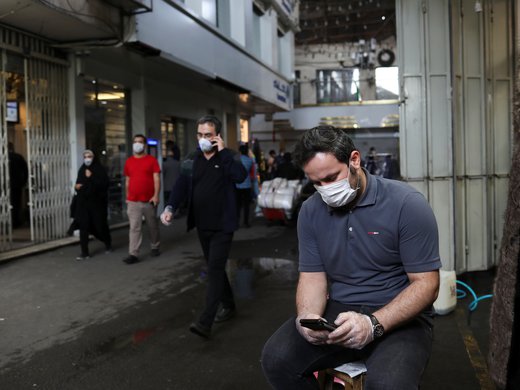After 50 years of political and economic isolation, Myanmar embarked on a hopeful period of transition in 2011, which culminated in the election of a civilian government in 2015. Almost as soon as the country opened up to the world, internet penetration began to rise, increasing over the next decade from 0.25 percent in 2010 to 41 percent in 2020, thanks to the arrival of international communication companies, including from China. As internet connectivity grew, so did mobile services and social media. As of mid-February 2021, there are 29 million social media users, equivalent to 53 percent of the population.
For a country that had experienced years of censorship, this new connectivity was a revolution. Social media platforms became the main source of information and communication. The New Light of Myanmar stated in 2013 that, in Myanmar, “a person without a Facebook identity is like a person without a home address.” While Burmese people were finally able to enjoy freedom of speech and information, the consequences could also be devastating. In 2018, the United Nations’ Independent Investigative Mechanism for Myanmar concluded that the popular social media platform had played a determining role in the genocide against the Rohingya.
When the Burmese military staged a coup on February 1, the coup leaders were well aware of the power of the internet in their country. Almost instantly, access to mobile and internet services were restricted. Local journalists reported that they had been logged off platforms such as Telegram and Signal. The coup leaders have now imposed daily near-total internet shutdowns, according to Netblocks, and many Western social media platforms are blocked. The military also introduced a draft cybersecurity law that would impose draconian rules and allow the government access to user data.
For a country that had experienced years of censorship, this new connectivity was a revolution.
As protest grows, the aim of the shutdown is to instill fear and to prevent people from communicating, organizing protest or accessing vital information. The coup leaders also want to prevent Burmese journalists from communicating with the outside world. As the crackdown on protests becomes more violent, the situation is likely to worsen, painting a dark scenario for a country that had finally embarked on a democratic path.
Myanmar is not a lone case. Authoritarian regimes and even fragile illiberal democracies have increasingly used internet shutdowns and restrictions to control information and communication. In 2020, there were 93 major internet shutdowns in 21 countries, many of them in the Middle East, North Africa and Sub-Saharan Africa. Governments have mostly initiated shutdowns in response to protests, particularly around elections or national crises. On the eve of the January 14, 2021, elections in Uganda, authorities ordered an internet shutdown, thereby allowing the President Yoweri Museveni to control the narrative of an election deemed “rigged” by the opposition. In August 2020 in Belarus, President Alexander Lukashenko restricted online access to clamp down on protests following a contested election. In Ethiopia, the government of Abiy Ahmed has regularly shut down the internet not only to muzzle criticism and prevent peaceful assembly, but to prevent the rest of the world from knowing what is happening in the Tigray region, where government forces have been accused of committing human rights violations.
Liberal democracies are not immune either. Indeed, when it comes to internet blackouts and restrictions of mobile service, India stands on top of the list. In 2020 alone, there were 75 shutdowns, more than in any other country in the world. The disputed region of Kashmir has been the main target; the government has justified the decision to restrict access, claiming that it was “in the interest of the sovereignty and integrity of India.” This a real blow to democracy.
The proliferation of internet shutdowns and digital border walls is a worrying sign not only for human rights and international development but also for the future of an open and free internet. Today, the centrality of the internet for the economic, political and social life of individuals cannot be underestimated. The COVID-19 pandemic has only reinforced this; increasingly, we rely on internet access for information, communication, health care, business and education.
The Global Network Initiative (GNI) identifies 14 impacts of internet blackouts and service restrictions. First on the GNI’s list is that from the perspective of people’s rights to freedom of expression and access to information, shutdowns are a violation of the Universal Declaration of Human Rights, which states that everyone has the right to “seek, receive, and impart information and ideas through any media and regardless of frontiers.” These rights also apply online, as the UN Human Rights Council recognized in 2018. Further, according to a report on the global cost of internet shutdowns in 2020 by research group Top10VPN, 42 percent of the shutdowns were associated with additional abuses of human rights as governments attempted to hide their crimes and muzzle dissent. In Myanmar, protesters are currently using social media — to the extent that they can — to “show the world what’s happening.” When a state shuts down the flow of information and cracks down on digital resistance, it does so to instill a sense of fear and powerlessness among the population it is trying to control.
Another key impact highlighted by the GNI is that losing internet access is a matter of immediate safety and security. Indeed, daily life is immediately impacted by shutdowns as citizens lose access to vital information and services, including government services, educational institutions, banks, hospitals and airports. During the pandemic, this became a real problem in Kashmir, as health care professionals rely on the internet to access medical content.
The GNI’s list also points out that internet shutdowns conflict with the United Nations’ Sustainable Development Goals. The 2030 Agenda for Sustainable Development emphasizes the importance of internet access for the eradication of poverty, stating that “the spread of information and communications technology and global interconnectedness has great potential to accelerate human progress, to bridge the digital divide and to develop knowledge societies.” In just a few decades, the internet has contributed to economic growth, including in emerging economies where digital economy is rising fast.
Thus, in addition to harming human rights, internet blackouts have devastating effects on both the national and the global economy. In 2020, the global cost of internet shutdowns was more than $4 billion, according to Top10VPN. Netblock’s data-driven online Cost of Shutdown Tool allows anyone to easily estimate the economic costs of internet disruptions of an affected country or region, providing a quick view of their destructive impact on economic growth. And, according to a study from the GNI, even low-connectivity countries can lose an average of $3 million per day. As an ecosystem, the internet relies on openness and collaboration: if one network is under threat, the impact is felt all across the net.
For local economies, shutdowns affect consumers, local traders and, in particular, small and medium-sized businesses that rely on online access for payments, consumer access, delivery, innovation, communication and more. For example, many Ugandans in rural areas use internet access and apps to order and deliver goods. When those apps and access is unavailable, businesses and small traders lose clients, profit and livelihood. If internet shutdowns occur often, they will exacerbate economic inequalities. In Myanmar, tech-based businesses have closed down temporarily and international transactions have stopped. For a country that has started attracting foreign investors, these interruptions could destroy investor confidence. Yet those in power are willing to sacrifice the economy for their political survival.
We have reasons to worry for the future of human rights and for the future of an open internet. Indeed, internet shutdowns are part of several developments and trends that have Western policy makers, human rights agencies and technologists worried about the erosion of a global free and open internet and the possibility of a splinternet.
China has already created a digital border wall by creating its own internet and social media apps, thereby heavily controlling how its population thinks and acts. Beijing’s sovereign internet model is spreading on several continents. While it has yet to take China’s radical measure, Russia has embarked on a similar path toward internet sovereignty and isolation by building its own technological infrastructure and mobile apps that allow the Kremlin to surveil Russian citizens. Similarly, Iran is working with China to improve its existing National Internet Network, or SHOMA, a complex internet system that gives Tehran control over its online spaces.
These developments are bad news for human rights in the twenty-first century. Democratic governments have formed alliances such as the Freedom Online Coalition to defend internet freedom. But there is still a lack of global norms or even assessment mechanisms that would push UN member states to design and govern internet regulations and digital services that are consistent with human rights standards. Since international human rights, sustainable development and global markets have grown dependent on access to a free and open internet, it is high time to take proactive measures.




